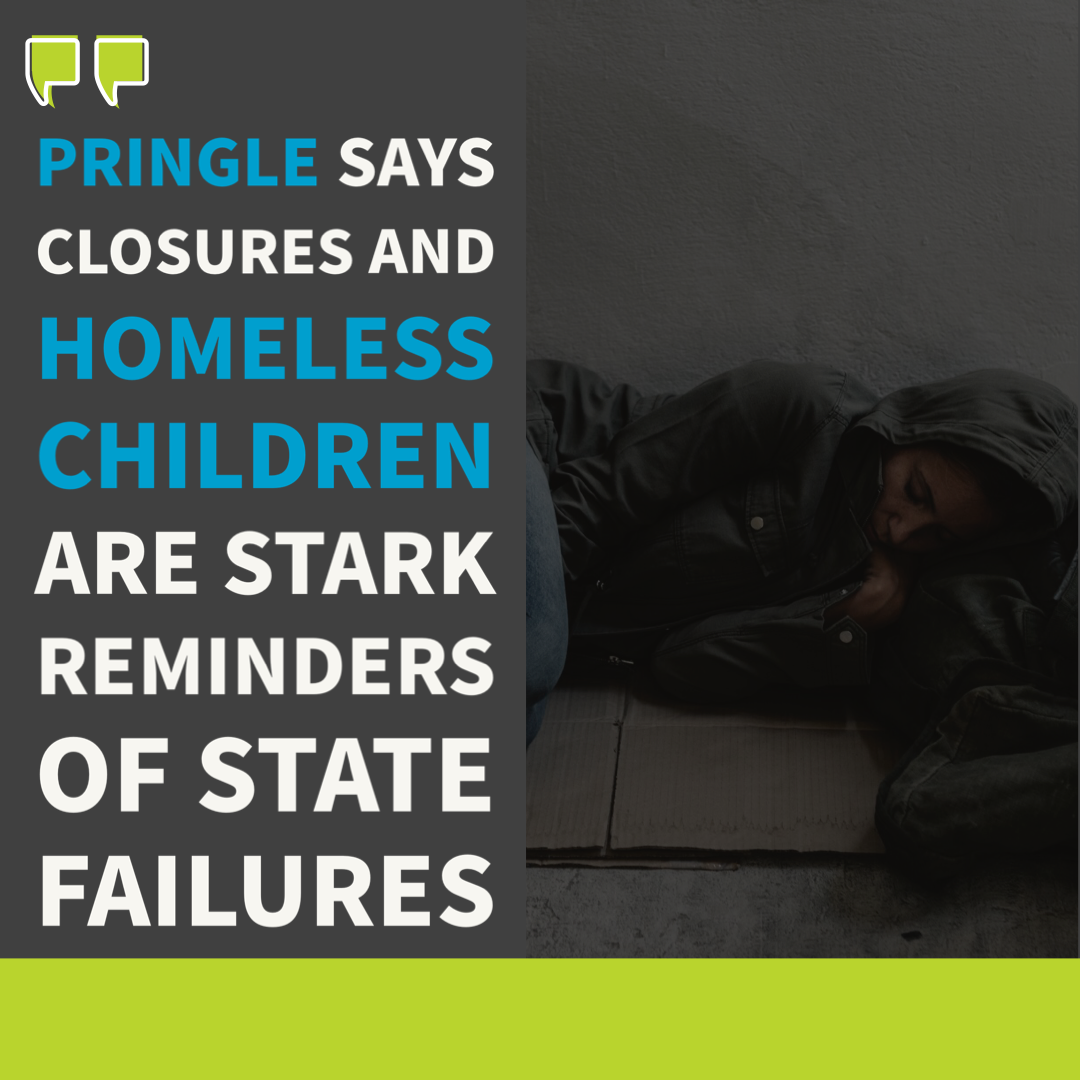- Pringle: We need a policy that recognises the importance of inshore fishing
- Pringle: Disabled people and carers face crisis of State neglect
- Pringle: Failed FF/FG housing policies forcing people to put their lives on hold
- Pringle welcomes Donegal council motion on Occupied Territories Bill: ‘We cannot stand by in the face of genocide’
Pringle says closures and homeless children are stark reminders of State failures
- Updated: 1st November 2022

Independent TD for Donegal, Thomas Pringle, said, “Every local closure, every tent and every single one of the 3,071 homeless children is a stark and daily reminder of the failures of this State,” in his criticism of the Finance bill.
Addressing the Dáil on Tuesday evening, Deputy Pringle said: “Despite the fact that Ireland is ranked as one of the wealthiest countries in the world, with a relatively strong economy, this is in no way reflected on the ground in our cities, towns or rural communities.
“When I make my way to work in the morning, whether it be to Leinster House or my constituency office in Killybegs, I see no indications of living in a wealthy country or even a functioning one. Because a functioning country looks after its citizens. A functioning country does not leave its citizens hungry or struggling to make ends meet. It does not leave them abandoned in tents and crumbling houses.”
The deputy said: “I see nothing of substance in this bill. Nothing but temporary scheme after temporary scheme, putting a plaster on a bullet wound. Doing nothing to address the systemic change that this country so desperately needs, but temporarily covering up and facilitating the issues we are experiencing.”
He said of the Temporary Business Energy Support Scheme: “On the surface this scheme is welcome for small businesses that need urgent assistance with energy bills, but this has come far too late. I have been contacted by a shop owner in my constituency, for example, who has seen an incredible 118.8% increase in their energy bill, working out at an additional cost of €160,000 per year.
“When factoring in the increased costs in packaging and insurance, they were looking at a reduction of approximately €220,000 a year in their bottom line. This is completely unsustainable and without a doubt will force the closure of a number of local businesses in my town and throughout my constituency and indeed throughout the country,” he said.
He said the TBESS scheme “is not enough to help businesses in our rural communities get by this winter. It will, however, go a long way in helping big business and tech companies pay their bills, which will obviously be significantly higher. The fact that data centres, who currently account for 14 percent of Ireland’s electricity usage, could be eligible for this scheme is outrageous.”
The deputy said temporary schemes such as TBESS and Help-to-Buy schemes, “will only serve the system that is already failing the people of this country and will do nothing to address the energy crisis or the housing crisis that this government is forcing its citizens to face alone.
“We need targeted supports that are going directly to assist the people who need it most. We need to start building more affordable homes and create incentives for landlords to prioritise long-term rentals by increasing taxation on short-term rentals such as Airbnb,” he said.
Deputy Pringle said: “All in all this bill does nothing for most in this country.”
He said he was in contact on Tuesday with a second-year student nurse from Donegal studying in Dublin, who can no longer afford to travel home to see her family due to high fuel costs and Dublin rent. She said: “I have yet to have a conversation with another student who isn’t planning on leaving after college to work elsewhere. Nursing is a profession built off caring for people, yet we students do not feel cared for. We feel hurt and betrayed, and we are exhausted.”
Deputy Pringle said: “Again I want to reiterate the point that Ireland is one of the wealthiest countries in the world and if we choose not to help the people who need it, it’s a choice. And it is not because we couldn’t if we wanted to, it’s a choice that we make every day.”



